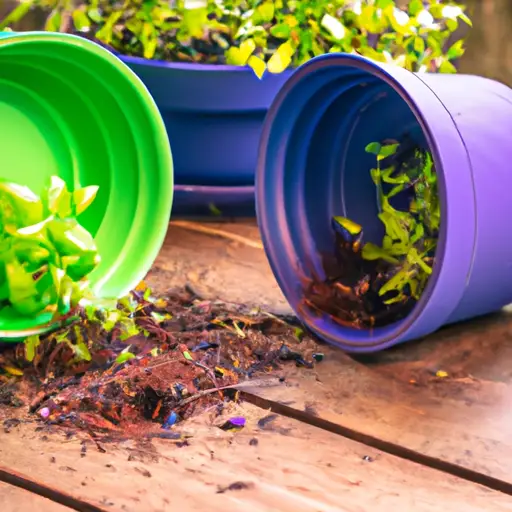Maintaining Healthy Soil & Nourishing Plants in Containers
Container gardening is a wonderful way to bring greenery and beauty into small spaces, whether it be a balcony, patio, or even indoors. However, to ensure successful plant growth and vibrant blooms, it is essential to maintain healthy soil in your containers. By nourishing the soil, you provide your plants with the necessary nutrients they need to thrive. In this article, we will explore some tips and techniques for maintaining healthy soil and nourishing plants in containers.
1. Choosing the Right Container: The choice of container plays a significant role in maintaining healthy soil. Select containers that have proper drainage holes to prevent waterlogging. Avoid containers made of materials that may leach harmful chemicals into the soil over time.
2. Quality Potting Mix: Opt for high-quality potting mix specifically designed for container gardening. These mixes are usually composed of a balanced blend of organic matter, such as compost or peat moss, along with perlite or vermiculite for improved drainage.
3. Regular Watering: Container plants require regular watering since they can dry out faster than plants grown in the ground. Ensure that you don’t overwater or underwater your plants as both can lead to soil-related issues such as root rot or nutrient deficiencies. Water when the top inch of soil feels dry and ensure excess water is allowed to drain away.
4. Fertilization: Unlike plants grown in garden beds where they can access nutrients from surrounding soil, container plants rely solely on what you provide them through fertilizers. Use slow-release organic fertilizers or liquid fertilizers according to the specific needs of your plants. Follow recommended application rates to avoid over-fertilizing, which can harm roots.
5. Regular Feeding: As container plants grow and go through their flowering cycles, regular feeding becomes crucial for sustained growth and blooming potential. Incorporate organic matter like compost or worm castings into the top inch of soil periodically to replenish nutrients.
6. Mulching: Applying a thin layer of organic mulch, such as wood chips or straw, on the soil surface helps retain moisture, suppresses weed growth, and prevents soil erosion. It also gradually decomposes, adding organic matter to the potting mix and improving its nutrient-holding capacity.
7. Crop Rotation: If you have a collection of containers for growing edible plants, practicing crop rotation is beneficial. Changing the location and type of plants each year helps prevent the buildup of diseases or pests in the soil and supports healthier plant growth.
8. Soil Testing: Occasionally, it is valuable to test your container soil’s pH level and nutrient content to ensure it is in optimal condition for plant growth. Soil test kits are readily available and can guide you on any necessary adjustments.
9. Organic Pest Control: Preventing pest infestations in container plants is crucial for maintaining healthy soil as pests can damage both plants and soil quality. Utilize natural pest control methods such as neem oil sprays or companion planting with pest-repellent herbs like basil or marigolds.
10. Regular Maintenance: Regularly inspect your container plants for signs of nutritional deficiencies or diseases. Promptly address any issues by adjusting fertilizer application or treating with appropriate organic remedies to maintain a healthy growing environment.
Container gardening provides an excellent opportunity to create beautiful displays of plants even if you lack a traditional garden space. By following these tips and techniques for maintaining healthy soil and nourishing your plants in containers, you can enjoy bountiful blooms and thriving greenery all year round!













